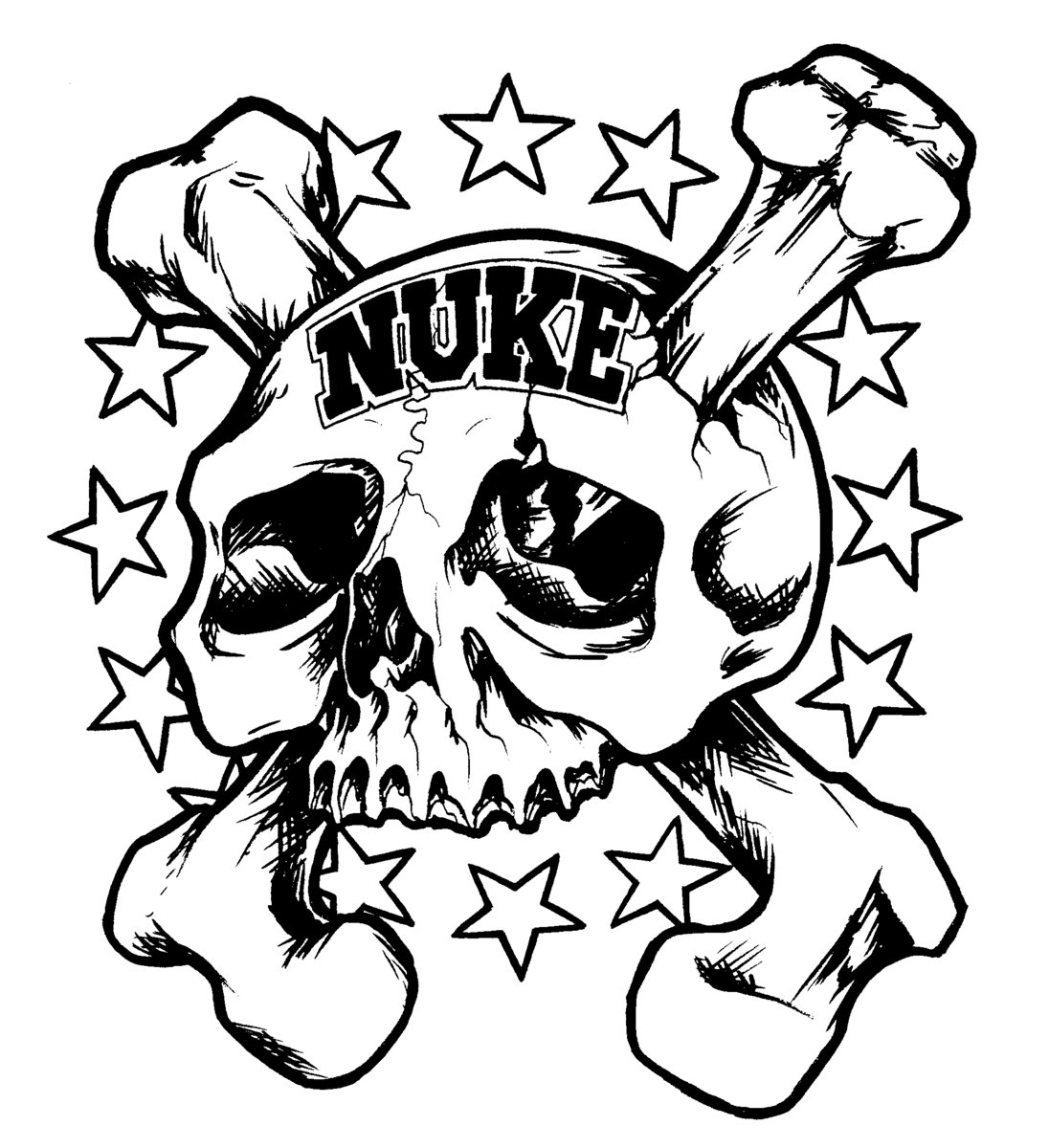What is a nuke? The term evokes images of mushroom clouds, post-apocalyptic landscapes, and moral dilemmas in the modern world. Yet, before we delve into the complex universe of nuclear weapons, let’s pose a playful question: What if we could harness nuclear energy solely for benevolent purposes? This inquiry may challenge our assumptions about nuclear technology and its dual nature. Understanding what a nuke truly represents encompasses a broad spectrum of scientific principles, geopolitical implications, and ethical considerations.
At its core, a “nuke” refers colloquially to a nuclear weapon. These formidable devices derive their explosive energy from nuclear reactions—specifically, nuclear fission or nuclear fusion. In the former, heavy atomic nuclei, such as uranium-235 or plutonium-239, undergo splitting, releasing vast quantities of energy. In the latter, light atomic nuclei, such as hydrogen isotopes, merge together, resulting in a release of energy exponentially more powerful than fission. The sheer magnitude of energy produced by these reactions underscores the awe-inspiring potential and peril inherent within nuclear technology.
However, beyond the simplistic dichotomy of destructive capability, the transformative ramifications of nuclear weapons extend into international relationships and security policies. Following World War II, the United States became the first nation to utilize nuclear bombs in warfare, culminating in the bombings of Hiroshima and Nagasaki. These acts precipitated not only immense loss of life but also the advent of the Cold War—a period marked by an intense arms race between nuclear powers, primarily the USA and the Soviet Union. This historical backdrop sets the stage for understanding the contemporary nuclear landscape.
The nuclear arms race brought about the doctrine of Mutually Assured Destruction (MAD). Under this precarious paradigm, both superpowers were deterred from initiating conflict, knowing that any nuclear strike would lead to an overwhelming retaliatory response, resulting in total annihilation. Thus, while nuclear arsenals serve as instruments of power, they also present a profound ethical challenge: Can such destructive power ever be justified? This introspection invites further questions about the responsibilities of nations wielding these cataclysmic weapons.
Nuclear proliferation—the spread of nuclear weapons technology to states not recognized as nuclear-armed—poses another formidable challenge. The Treaty on the Non-Proliferation of Nuclear Weapons (NPT), established in 1968, aims to thwart the dissemination of nuclear arms while promoting peaceful uses of nuclear energy. Yet, persistent geopolitical tensions, non-compliance by certain nations, and clandestine nuclear programs raise significant concerns about global security. For instance, events surrounding North Korea’s nuclear ambitions illustrate the intricate balance of power and diplomacy in a world where the threat of nuclear warfare can destabilize entire regions.
Emerging technologies related to nuclear science demand consideration as well. Innovations in nuclear energy offer tantalizing possibilities for sustainable power generation. By tapping into controlled fission, countries could meet substantial energy demands while substantially reducing reliance on fossil fuels. Yet, this potential is juxtaposed against the formidable question of nuclear waste disposal, safety of reactor technologies, and public opposition—often fueled by fears stemming from the destructive legacy of atomic weapons. Is it possible to reconcile the dual-use nature of nuclear technology for both energy production and warfare?
The scientific underpinnings of nuclear weapons, therefore, invite us to traverse an intricate web of theoretical principles, historical precedence, and ethical quandaries. The mechanisms at play within these devices involve quantum mechanics and thermodynamics, areas of physics that remain at the forefront of contemporary research. The spontaneous decay of radioactive materials, chain reactions initiated in fissile isotopes, and the cascading release of energy are not just academic topics; they are fundamental aspects of our lived reality. Thus, understanding the atomic structure—and its hidden capacities—encourages curiosity about the infinitesimal world that shapes the macroscopic phenomena we observe.
Nuclear disarmament remains an essential discourse in the quest for global security and the elimination of the weaponized threat. Numerous treaties, conferences, and dialogues have sought to curtail the expansion of nuclear arsenals. The ultimate goal is a world unshackled from the specter of nuclear annihilation. However, achieving consensus on disarmament involves navigating inherent political complexities and security dilemmas that frequently impede progress. What does it truly mean to feel secure in a disarmed world, and who is willing to take the monumental leap towards that possibility?
As we ponder the implications of possessing nuclear capabilities, the balance between deterrence and diplomacy must be examined critically. States must grapple with ensuring their sovereignty while fostering cooperative international approaches. The growing specter of rogue states and terrorist organizations acquiring nuclear capabilities compounds these challenges, intensifying the need for both stringent policy frameworks and collaborative security initiatives.
In conclusion, comprehending what a nuke entails is a multifaceted endeavor that transcends mere definitions. It encapsulates a historical continuum of technological advancements and complex international relations, interwoven with pressing ethical dilemmas. The playful question posed earlier remains relevant: Can we envision a world where nuclear technology is solely a force for good? While we navigate through the dark terrains of destruction and potential, the journey toward understanding the nuances of nuclear energy presents both a challenge and an opportunity—for humanity to rise to the occasion, redefine security paradigms, and embrace a future where the nobility of science prevails over the siren call of devastation.












